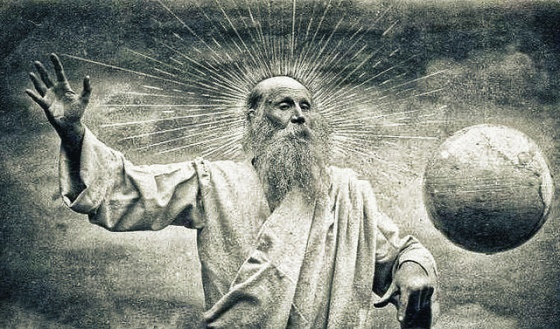By Dr. Brian Huffling,
Not even on the most distorted and contracted theory of good which ever was framed by religious or philosophical fanaticism, can the government of Nature be made to resemble the work of a being at once good and omnipotent [1].
Is this the worldview of a philosopher or a modern-day comic book villain? The answer is, yes. While these words were uttered by 19th century philosopher, John Stuart Mill, it is echoed by Lex Luthor in the most recent Superhero film, Batman V. Superman.
Batman and Superman have both been exciting characters for me. Over the years they, and many other fictitious characters, have exemplified the ideals of heroism promoting virtues like courage and perseverance in an imaginative way. But in today’s modern comic age, super-hero stories are becoming the backdrop for complicated ideologies that have trickled down from the ivory tower of academia and into the mainstream media.
The most recent example of this can be seen in the movie Batman v. Superman. In the film, Superman is portrayed as type of God-like being. The people of Earth see Superman not just as a “super-man,” but as a being with God-like powers, who can be anywhere, anytime, and do anything. This realization led many to wonder what moral obligations does a being like Super-Man have? Is an all-powerful being subject to any law? Other characters, such as Lex Luthor, the intellectual villain who recognizes that superman is not a God because God doesn’t exist for Luthor. He argues that if God were all-powerful, then God could not be all-good; conversely, if he were all-good, then he could not be all-powerful.
After seeing the film, I decided that I would use this as an opportunity to write an article responding to the many misrepresentations of God in our culture. Especially those views of God that seem to be dangerously close to viewing God as a type of super-human rather than Creator and Sustainer of the universe.
Christians and Theology
Many Christians believe that God is something like a super-being, having the same qualities as a man, only to an infinite (most of the time) degree. Like Superman, God is seen as merely the most powerful being in the universe who can do whatever he wants. Perhaps he knows all that there is to know, and perhaps he is everywhere. But he is still often seen as just a super-being.
Examples of this could be multiplied, such as the God of the famous study Bible by Finnis Jennings Dake. Dake argues for a hyper-literal reading of the Bible (not taking account of such literary devices as metaphor and figures of speech), which leads to God having a physical body. Such theologians, who have claimed to be evangelical, such as Clark Pinnock, have suggested that we need to rethink whether or not God has a body (see his Most, Moved, Mover, pp. 33-35). Word of Faith theology as taught by such thinkers as Kenneth Copeland and Jesse Duplantis teach that God is a physical being who lives on a planet and can only do in this world what we allow him (maybe his planet is called Krypton!).
These may be the extreme examples, but the notion of God being a super-human is not completely foreign to mainstream Christianity, and conservative churches are not immune to this thinking either.
Process Theology
Many in mainstream Christianity hold that God is in time. They believe that he is a temporal, changing being who is in a process of becoming something (better?). Such is known as process theology, and while not all who think God changes, is in time, etc., consider themselves process theologians, it is hard to deny the conclusion that God is somehow in a temporal process of learning and becoming something that he was not before. Even William Lane Craig, one of the leading Christian philosophers of our time, holds that God is in some way a temporal being (who undergoes types of change) after creation if he is to have relations and know changing events (see his Time and Eternity).
Is God a Moral Being?
Many, if not most, also think of God as a moral being. Does he have duties or obligations? Most Christians would say no; however, they would be quick to point out that he is consistent with his very (moral) nature, and thus would never do anything “immoral.” But what would it mean for God to be immoral? What would he be violating?
Perhaps one of the popular ways Christians think of God as being a super-creature is the notion of how he reacts to us. Traditionally God has been seen to have no emotions that are something like human emotions. Emotions, or passions, have been historically tied to having a physical body; thus, immaterial beings would not have emotions or passions. The denial of God being emotionally affected by us has been called the doctrine of impassibility.
For the most part this doctrine was held as a standard view of God throughout church history. However, today, it is commonplace to talk about God as an emotional being who is upset by our actions, made happy by our obedience, and angered by sin. Of course the Bible uses such language, but I would argue it is being figurative and not literally saying that God changes (which it also says God can’t do, e.g. Numbers 23:19); Christians by and large throughout the church have not generally held that God is emotionally affected by us. Today, however, it is often charged that if God cannot feel what we feel and if he is not affected by our emotional highs and lows, then he simply cannot relate to us. Such a being is seen as inferior to what God should be like. In fact, just about all of the ways in which I have talked about God being more like man have been a way to make God seem closer to us, more able to relate to us. I would argue that this has resulted in making the Almighty, transcendent being of infinite perfection into our image.
Such a picture of God has led to the famous “problem of evil” to which Lex Luthor referred (at least in part). That is, if God is all-powerful, all-knowing, and all-good, then why does evil happen? The way this issue is framed seems to put God on trial for evil. The thinking is, as many atheists have said,

- God is all-powerful
- God is all-good
- Evil exists.
Since there is evil, it seems as if God is not the all-everything of classical Christian teaching. Some theists have maintained that God is either not all-powerful or not all-good—to which Lex Luthor would agree. However, such is not the Christian God.
So if this is not what God should look like, then what is he like? A satisfying answer cannot be given here due to space limitations; however, I will try to compare and contrast the “Superman God” with the traditional God of classical Christian theism.
God vs. Superman
Historically the orthodox view (standard position) has been that God is pretty much the opposite of how we have been describing him so far. Rather than being a super-being, he is pure, infinite existence; immaterial (therefore, no physical body, having no passions); not a being in time and space; not a being that can change or is in some kind of a process. God is a perfect being in the sense that he cannot get any better than he already is and he lacks nothing (how could pure existence lack anything?).
Rather than God being a super-being or Super-man, he is completely distinct from the created order. He does not require anything for his existence, but he is the ground of all other existence. He is not a physical being. If he were, he would be put together of different parts, and something other than he would have had to put him together. The contingent universe requires a necessary cause. However, a physical body is contingent and would have had to be caused. So God cannot be physical. He also cannot be in time, change, or be in a process. As the creator of time and space, he cannot be temporal or spatial. Rather, he is eternal and immaterial. This also means that we cannot affect him, as he is perfect in his own existence, not in time (which change requires), and not dependent on us for his happiness.
When I say God is not a moral being, I’m saying he is not the kind of being to be moral. I think this has been the traditional view of God that has somehow morphed into Lex Luthor’s Superman. Philosophers, in the orthodox camp certainly call God good, even perfectly good. But this goodness is not a moral goodness. It is a metaphysical goodness. In other words, he is perfect goodness since he is perfect being. He lacks nothing.
This is at least one way to answer the problem of evil, at least if one is trying to get God “off the hook for evil,” as it were. God is not on the hook. He is not to be blamed or held accountable (what would be the standard of goodness to hold God to, and who would he be accountable to?).
What I have been trying to unpack in a short time is this: the God of the Christian faith has been constantly eroded and devolving into a man. It is interesting that Lex Luthor argued that society makes God into its image and creates its own God. While this has been proven to be false historically in terms of where the idea of God came from (see Winfried Corduan’s In the Beginning God: A Fresh Look at the Case for Original Monotheism) it does seem that the notion of God can devolve into what we are like. We do tend to think of God in human concepts. This is because we do not directly know God through sense perception and thus make him into what we think he should be like.
Such a view of God leads into various problems, the first being it is simply false. A second is that it makes us think that God should be something that he is not, or even could be. Third, it makes us believe that God should act in ways that he does not, or could not. Fourth, it sets up a false problem of evil where we see God as being morally culpable for evil.
When we have a right view of God, which is what the Bible demands of us, the above problems disappear. Having a right view of God is not easy. It takes hard work and years of study. But, as human beings, nothing should be more interesting or important than our quest to learn more about our God. Such study will guard us against bad theology and philosophy, such as we see from Lex Luthor.
It seems that more and more we are being bombarded in the media, music, and movies by bad theology and philosophy. Zack Snyder’s Batman V. Superman film is an excellent example of how philosophy directly influences art and indirectly the audience. Christians cannot afford to be anti-intellectual or philosophical ostriches. We need to be aware of such teaching as we see in movies like “Batman v. Superman” And we need to be able to defend our Christian faith from a hostile world. Pastors and youth pastors especially need to be aware of such needs concerning our youth, who are being devoured by the media and ferocious professors in the Academy.
While many schools and seminaries have abandoned and are abandoning a classical view of God, Southern Evangelical Seminary and Bible College is standing strong to uphold such a view. Our President, Dr. Richard Land has often referred to SES as a training ground for Special Operations troops in the Kingdom of God. As someone who has gone through the training and now is one of the trainers, I can say that SES is a greatly needed base of operations in a war that is waged against Christianity.
END NOTES
[1] John Stuart Mill, Three Essays on Religion, (Amherst, NY: Prometheus Books, 1998). 38.
[2] Lex Luthor Photo Credit: http://www.imdb.com/media/rm3205623808/nm0251986








